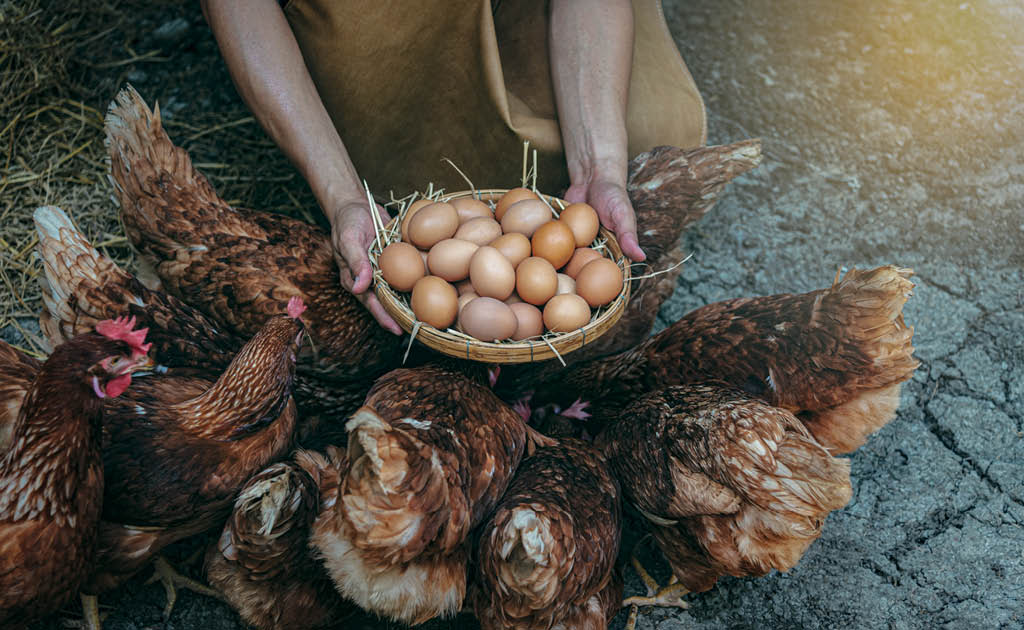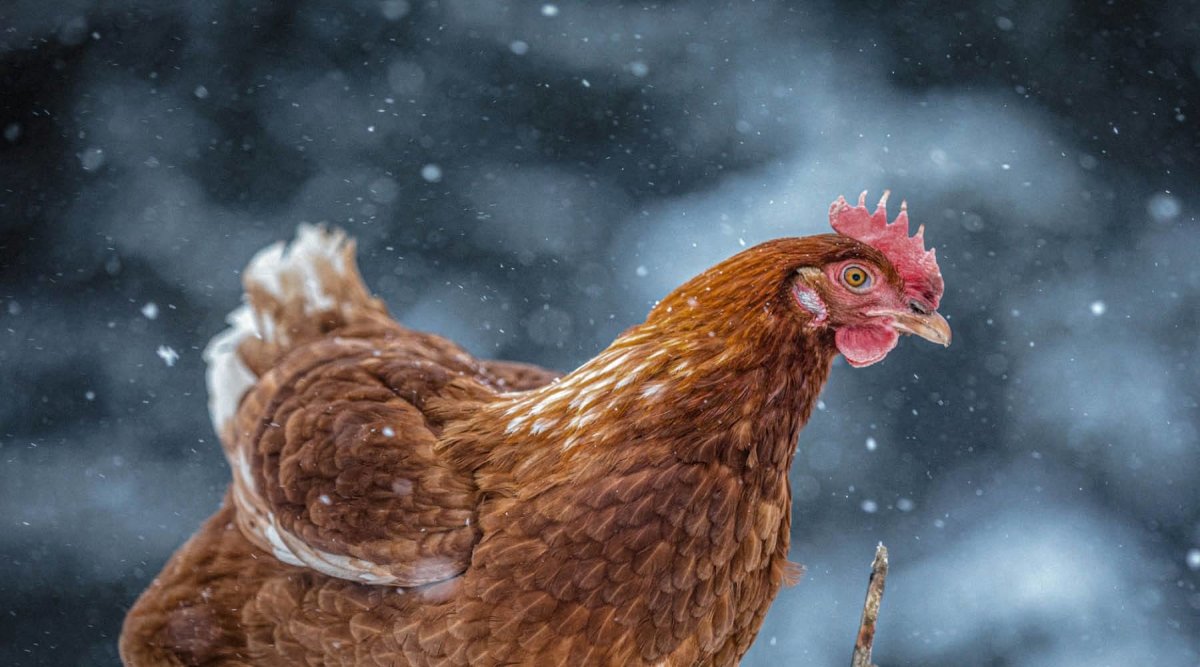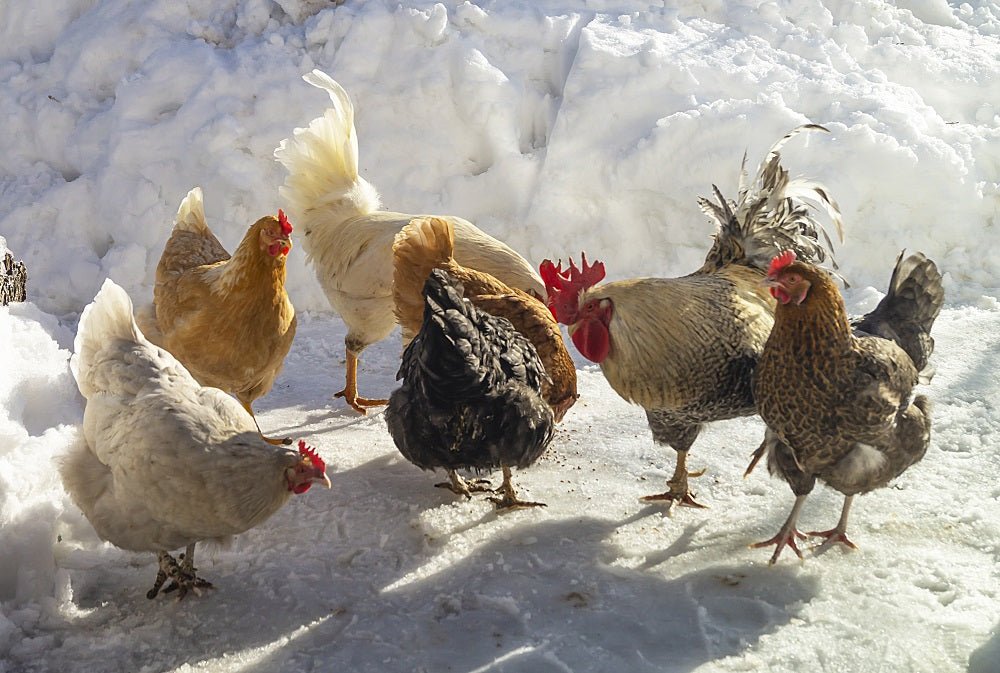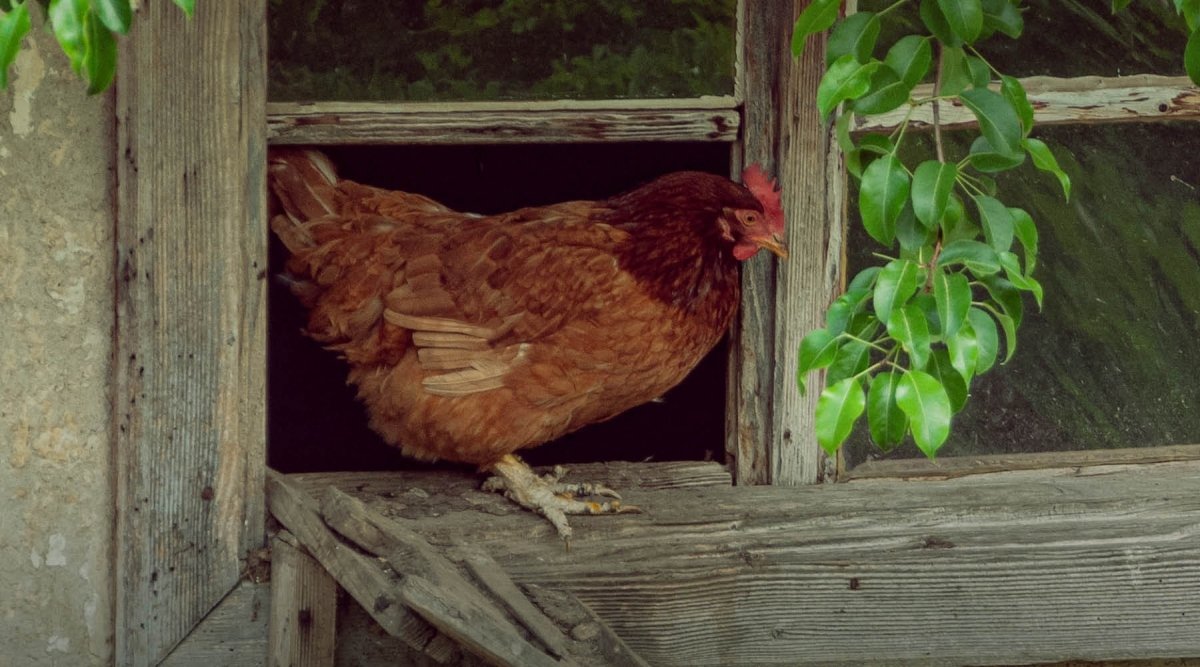Chickens cope very well in winter, they are robust poultry and their plumage protects them from the cold and wind. In fact, chickens actually prefer cold temperatures to heat. However, prolonged wetness and constant snowfall can be very challenging for the animals. Chicken husbandry and chicken feed must therefore be adapted in winter.
How do I keep my chickens in winter? - 10 tips at a glance
- Install snow guards on the roofs before the first frost
- Avoid draughts: Close and seal all windows well
- Clean the coop, laying nest and enclosure regularly and don't skimp on bedding
- Create a dry climate in the coop, as poultry do not like moisture
- Ensure warm feet: Scatter wood shavings in the hutch and spread straw over them
- Provide adust bath: It helps to control vermin and absorbs moisture in the feathers
- Make sure that your chickens have intact feathers without holes
- Regular ventilation dispels stale air
- Set up heat lamps during long winter spells
- Provide sufficient activity to avoid feather pecking
Chicken feed in winter
In winter, chickens have a higher metabolism as they have to fight against the cold and develop strong, warm plumage. The organism must provide the necessary energy for this. A nutritious, fatty feed with all the necessary nutrients is a prerequisite for this.
High-energy feed
Nuts, sunflower seeds and oat flakes are real energy suppliers and stimulate the animals' fat production. You can add some oil to the feed, safflower oil is very suitable.
Brewer's yeast for feathers and skin
We recommend mixing a portion of brewer's yeast into the feed every day to help develop the feathers. Brewer's yeast provides your poultry with important vitamin B and supports skin and feathers.
Sufficient green feed
In winter, there is usually less green feed for the animals to pick at. Therefore, make sure that your chickens are fed enough. You can also feed your chickens the following green fodder in winter:
- Young nettles
- Grass, also as grass cuttings
- Alfalfa or clover (this is hardy and can be found at the edge of the field)
- Feel-good herbs
- Herbs such as oregano, parsley, leek
- Carrot greens

Clean, frost-free water
Your chickens must have free access to clean water at all times. In winter, it is also important to keep the water frost-free. When it snows, water and feed bowls should be brought into the coop. If they are covered in snow, the animals can no longer reach the water and food.
If you have a power connection near the henhouse, you can use drinker warmers. These are heating plates that are placed under the drinkers and keep the water frost-free.
Alternatively, you can remove frost from the drinkers by hand using warm water. Depending on how cold the winter is, this can be time-consuming.
Keep them occupied
You can fill hay nets with alfalfa in the hutch and attach them to the ceiling. This will keep the animals busy while they peck. Feed balls are also very suitable for more distraction and activity when it's cold outside. Feeding balls filled with green food, lettuce, fruit, vegetables and other leftovers work wonders against boredom in chickens and reduce feather pecking.
Tip: Do not place the feed holders underneath perches so that the feed is not contaminated with the animals' droppings.
Mineral stones are another activity for chickens in winter. They stimulate the animals' activity and distract them from feather pecking in the long term. In addition, chickens absorb vital salts, minerals and trace elements such as calcium, magnesium and zinc. This promotes bone and feather development as well as metabolism.
Do chickens lay eggs in winter?

Hens lay slightly fewer eggs in winter than at other times of the year. But they will lay if the conditions are right.
Light is crucial for egg production. This is because egg production depends on the source and duration of light. It is well known that the duration and intensity of light decreases in winter, which reduces the laying performance of the animals.
So if your hens lay fewer eggs or none at all in winter, this is due to a lack of light.
A second factor is the animals' mineral supply. If chickens have too few minerals, especially calcium, they cannot produce eggs. The organism then retains the minerals for its own supply and for the development of the plumage.
A natural source of calcium for chickens is shell grit. It supports egg formation and prevents deficiency symptoms. Chicken farmers know how important crushed mussel shells are for poultry.
Can you let chickens out in the snow?
Chickens can also go outside when it snows. However, they will make little use of it when it snows. This is because the animals do not like to be in the snow, especially not when it is falling from the sky.
With outdoor enclosures in winter, care must also be taken to ensure that the ground in the run is not too muddy and wet. Otherwise, chickens can also fall ill if it gets too wet.
At sub-zero temperatures, there is also a risk of the comb and wattles freezing off. You can apply milking grease to these.




